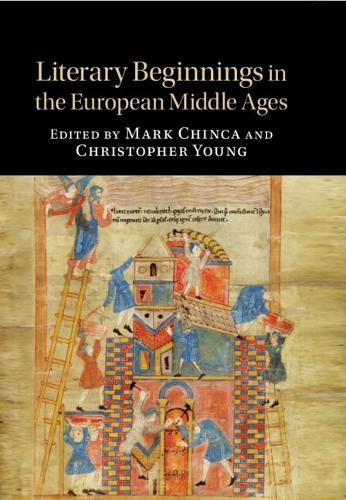Readings Newsletter
Become a Readings Member to make your shopping experience even easier.
Sign in or sign up for free!
You’re not far away from qualifying for FREE standard shipping within Australia
You’ve qualified for FREE standard shipping within Australia
The cart is loading…






How did new literatures begin in the Middle Ages and what does it mean to ask about such beginnings? These are the questions this volume pursues across the regions and languages of medieval Europe, from Iceland, Scandinavia, and Iberia through Irish, Welsh, English, French, Dutch, Occitan, German, Italian, Czech, and Croatian to Medieval Greek and the East Slavonic of early Rus. Focusing on vernacular scripted cultures and their complicated relationships with the established literary cultures of Latin, Greek, and Church Slavonic, the volume’s contributors describe the processes of emergence, consolidation, and institutionalization that make it possible to speak of a literary tradition in any given language. Moreover, by concentrating on beginnings, the volume avoids the pitfalls of viewing earlier phenomena through the lens of later, national developments; the result is a heightened sense of the historical contingency of categories of language, literature, and territory in the space we call ‘Europe’.
$9.00 standard shipping within Australia
FREE standard shipping within Australia for orders over $100.00
Express & International shipping calculated at checkout
How did new literatures begin in the Middle Ages and what does it mean to ask about such beginnings? These are the questions this volume pursues across the regions and languages of medieval Europe, from Iceland, Scandinavia, and Iberia through Irish, Welsh, English, French, Dutch, Occitan, German, Italian, Czech, and Croatian to Medieval Greek and the East Slavonic of early Rus. Focusing on vernacular scripted cultures and their complicated relationships with the established literary cultures of Latin, Greek, and Church Slavonic, the volume’s contributors describe the processes of emergence, consolidation, and institutionalization that make it possible to speak of a literary tradition in any given language. Moreover, by concentrating on beginnings, the volume avoids the pitfalls of viewing earlier phenomena through the lens of later, national developments; the result is a heightened sense of the historical contingency of categories of language, literature, and territory in the space we call ‘Europe’.